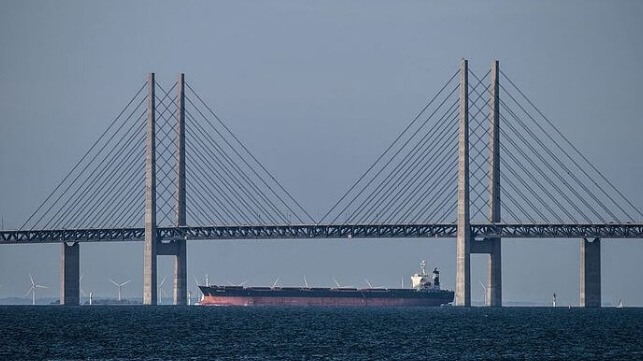Danish Maritime is Concerned Russian Tankers Will Sail Without Pilots

With tensions further increasing between Russia and the west, the Danish Maritime Authority is expressing safety concerns over Russian tankers operating through the Danish Straits. The maritime authority is concerned with increased sanctions on Russian oil due to begin in just over two months, that Russian tankers might increase their attempts to hide their activities.
The Danish Maritime Authority is raising concern that tankers carrying Russian oil might elect not to use pilots when transiting Danish waters. They are pointing to similar efforts by Iranian and Venezuelan tankers that regularly take steps to avoid detection. Turning off AIS signals is a common tactic, but the Danes are concerned that tankers carrying Russian oil might also elect to forego pilots to reduce observations of their movements.
“As a significant shipping nation with more than 7,000 km of coastline, we are obliged to prioritize safe and environmentally sound navigation,” Maria Skipper Schwenn, executive director for climate, environment and security at Danish Shipping told the Financial Times.
The newspaper cites data from Danish commodity analytics group Kpler saying that as much as 1.5 million barrels of oil a day continues to pass through Danish waters sailing to the North Sea and the Atlantic Ocean. They report that nearly 200 tankers are sailing through the sea lanes around Denmark. The Danish Maritime Authority’s data shows that nearly all of them are currently using pilots.
Earlier this year, Danish pilots threatened to stop servicing Russian vessels. A pilot and union board member, Bjarne Cæsar Skinnerup, told the TV2 news channel in Denmark that he and several of the pilots wanted to stop guiding Russian tankers as a protest over the invasion of Ukraine.
The Danish Maritime Pilots association (DMP) issued a statement in March condemning the Russian invasion of Ukraine and looking for a decision on Russian ships' access to Danish ports and territorial waters. It is estimated that 30 million tons of Russian oil pass through Danish waters each year. The Financial Times reports that the volumes have remained nearly constant since the start of the war but it is unclear how the new sanctions will impact the trade.
Israeli maritime AI consultancy Windward warned in the spring that it had already seen a strong increase in the number of “dark” incidents. At the end of March, they reported 33 incidents where signals were not received from Russian tankers.
While Russian ships were being turned away from European ports, the Danish government cited an 1857 treaty that provides safe passage through the straits. They said safety concerns are the primary issue refusing to agree to suspend pilot services.

that matters most
Get the latest maritime news delivered to your inbox daily.
Top picture Oresund Bridge in Denmark (Jorchr photo - CC BY-SA 3.0 license)
